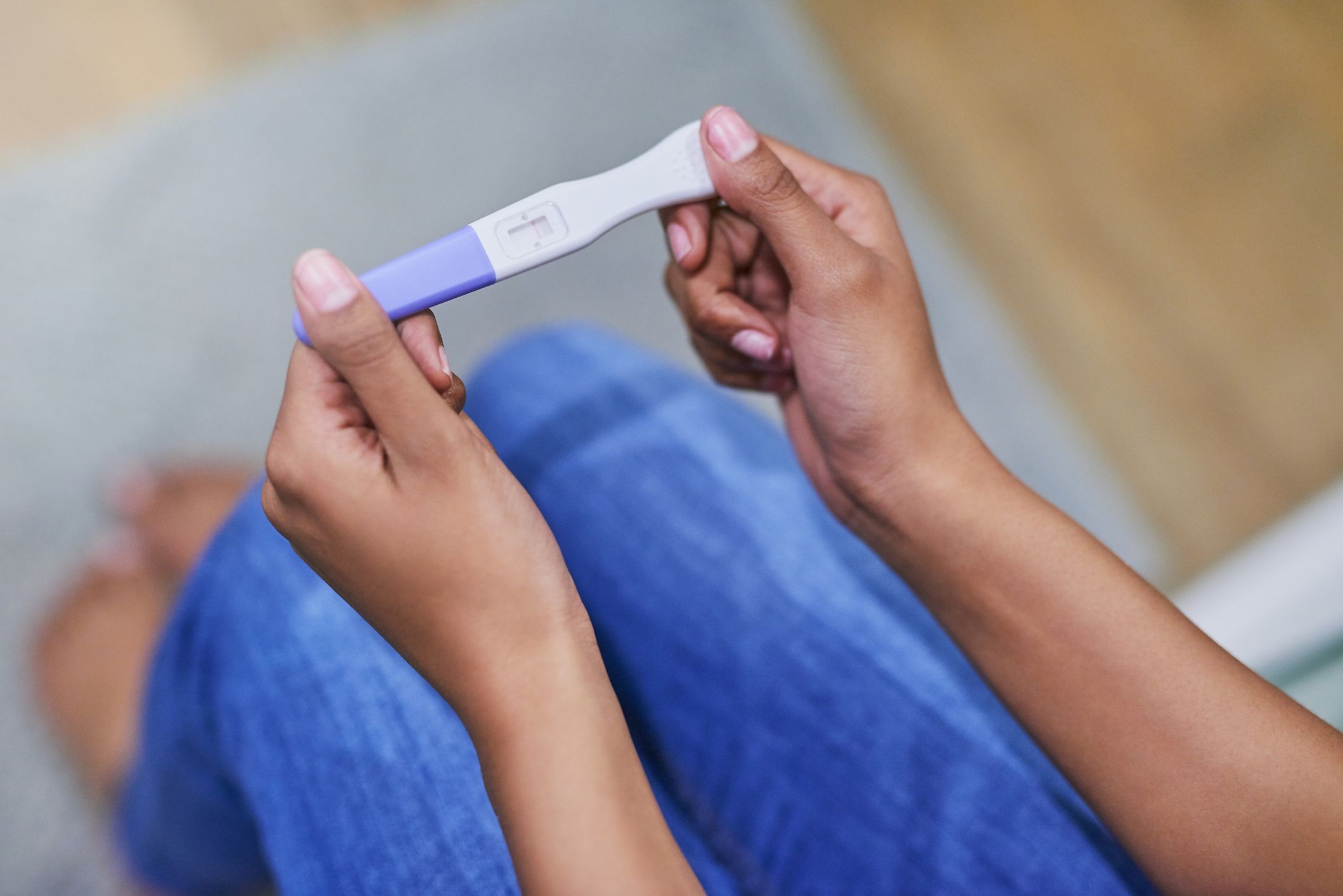For some people, finding out they’re pregnant with one baby is enough of a shock. But can you imagine finding out you’re pregnant with a second child…while you’re already pregnant with one? While that scenario sounds like something straight out of a movie, it’s a real thing.
A double pregnancy like this is medically referred to as superfetation that can only occur under a couple of specific circumstances (more specifics in juuuust a sec). But you should know upfront that superfetation is *incredibly* rare. Research suggests that superfetation may only happen in one out of a few million pregnancies; and it’s thought that there are fewer than 10 cases reported in medical literature.
Can’t wrap your head around this? Check out these stories: One California woman who carried a couple’s child as a surrogate also got pregnant with her own biological child after she was already pregnant.

In a separate account, an Australian woman had “twin” girls who were actually 10 days apart in age because she was pregnant with two babies at the same time. Oh, and a woman in Bangladesh with two uteruses delivered one baby normally and then—wait for it—twins 26 days later, via C-section.
So…can someone plz explain?! Ahead, an ob-gyn shares everything experts understand about superfetation, and how likely it is to actually happen to someone.
How does a superfetation double pregnancy even happen?
Superfetation can only happen under a few specific circumstances: when a woman either has a double uterus, or if she ovulates multiple times, and the second egg gets fertilized.
“There are cases of women ovulating twice in the same cycle, or women who have ovulated while already pregnant,” explains Mary Jane Minkin, MD, an ob-gyn at the Yale University School of Medicine. The other way that superfetation could occur is if a woman has a double uterus, according to research published in the Journal of Reproduction & Sexual Health.
But typically, once you’re pregnant, the body sends signals by emitting hormones to stop ovulation and block other pregnancies from happening, the Journal of Reproduction & Sexual Health study authors state. And after the first fertilized egg attaches itself to the uterine wall, the uterine lining thickens to support the egg, which will likely prevent another egg from triggering the same exact process to happen all over again.
On top of that, the cervix forms a protective barrier for the fetus that sperm shouldn’t be able to move past. So for superfetation to take place, it has to be the perfect storm of ovulating very irregularly or, once an egg has already been fertilized, having a second egg get fertilized and successfully implanting on the uterine wall. Whew, that’s a lot.
For those reasons alone, you don’t hear about superfetation every day. Double pregnancies have also happened in mammals like horses, but it seems that they happen much more rarely in humans—most ob-gyns haven’t seen a case like this in their entire career.
So superfetation is different than carrying twins, right?
Correct. Superfetation might be mistaken for a twin pregnancy in an ultrasound because it also involves seeing two babies, but it’s not the same thing.
There will be a difference in gestational age with a double pregnancy, because the two babies were conceived at two different times (even if a few days or weeks apart). There may also be a gap in the size of the fetuses, but this is also common in regular twins when one twin takes more nourishment than the other, according to research. Twins can also simply grow at different paces, Dr. Minkin notes.

And, Dr. Minkin points out, twins are from two (presuming fraternal twins, not identical) eggs released at the same time, with the same father. A double pregnancy could technically result from two different sexual encounters with two different people. “But superfetation can of course be from the same father, and just conception happening at different times,” says Dr. Minkin. Again, that would have to rely on a woman ovulating multiple times within a cycle, or ovulating once already pregnant, and the second pregnancy taking successfully.
How would you know if you’re dealing with a double pregnancy versus having twins?
Because this is so rare, there are no documented symptoms or tell-tale signs of a double pregnancy. Doctors may not even be able to tell the difference between superfetation and a twin pregnancy, unless there is a stark difference in gestational age or size (as in the woman with two uteruses who gave birth to babies 26 days apart).
Superfetation may only happen in one out of a few million pregnancies, research suggests.
A woman might not have any idea she was dealing with a double pregnancy until the babies are actually born, especially if they are very close in gestational age. “The major way that people know it has happened is if the fathers are of different races, so the differences in the babies may be obvious,” Dr. Minkin says. In that case, superfetation would have to be proven via genetic testing, she adds. Other than that, there’s no a specific test that your doctor would run for a double pregnancy because it is so rare.
Are double pregnancies safe?
There isn’t much data on the pregnancies and deliveries of these cases, given that superfetation is so unusual, Dr. Minkin says. But there shouldn’t be a problem with safety and the babies should be fine and make it almost to full term, especially if you have good prenatal health and obstetrical care. “In general, multiple gestation pregnancies often need to be delivered early, but again, would likely do well,” Dr. Minkin says.
Older research has shown that delivery timing might be tricky in cases of double pregnancies since the fetuses are two different gestational ages, but delivery somewhere between 37 and 38 weeks of pregnancy is typically recommended for superfetation cases. As for the delivery itself, the two babies most likely will have to be born on the same day, regardless of when they were conceived or how long of a period of time they’ve had to develop. It may be necessary to induce labor early or deliver both babies by C-section, since it’d be nearly impossible to deliver one at a time, but those instances are also common in regular multiple births, according to 2017 research.
The bottom line: While superfetation is not impossible, you really don’t need to panic about the chance of having a double pregnancy, as it’s so rare. Remember, superfetation may only happen in one out of a few million pregnancies.
Source: Read Full Article


